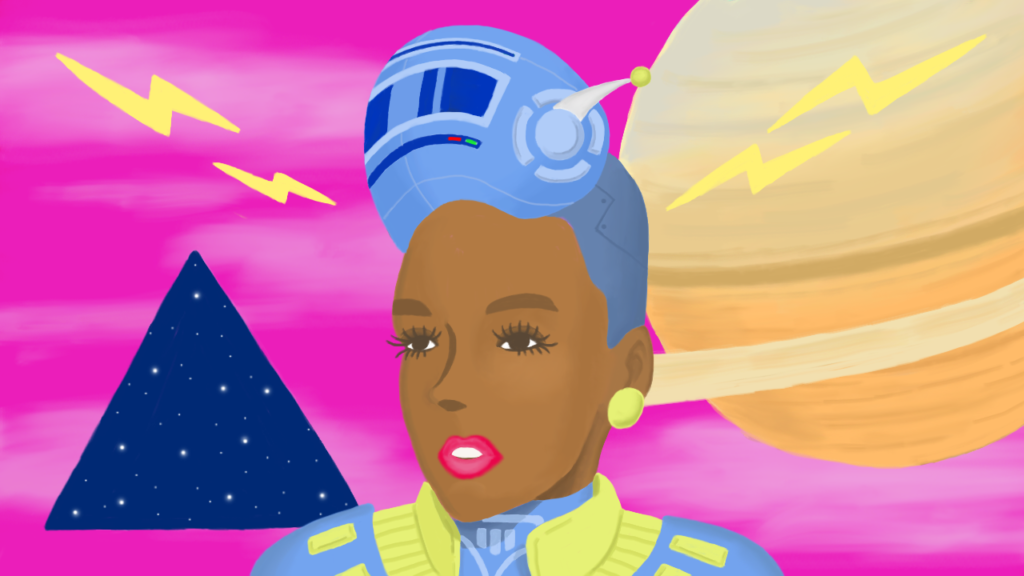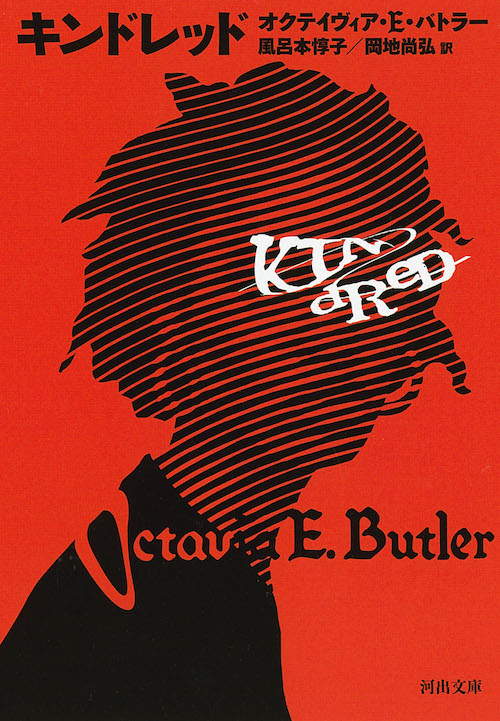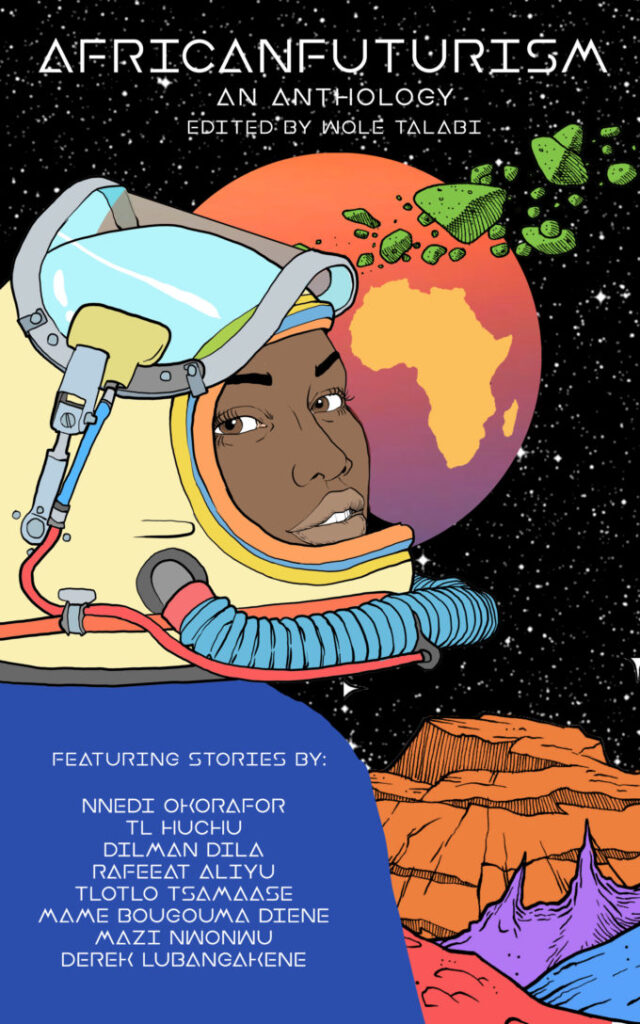vol.0 What do you mean by science fiction?
vol.1 Makeup, Fashion, and Transformation
vol.2 The History of Cyberpunk
I would like to ask Japanese readers how many African-American science fiction writers can they name. Can they name anyone apart from Samuel R. Delaney and N. K. Jemisin?
In 2015, an American speculative fiction magazine, Fireside Fiction, published survey data on their website. It reported that of the 2,039 stories published in 63 magazines, only 38 were written by black authors. However, 13.2 percent of the US population is black. The magazine published survey data every year from 2015 to 2017. They also published essays with the results, and several writers mentioned their experiences of being told that books focused on African-American characters and culture cannot sell much.
Author Tobias S. Buckel mentioned his 2007 blog post in his essay, which appeared in Fireside in 2015. He wrote that “Someone says SF/F isn’t diverse, people respond by chanting ‘Hopkinson, Butler, Delany, Barnes’ like it’s a magical phrase that dispels the +10-diversity attack spell.” and also “12% of the US is African American. By simple math, you can take our figure of 2,000 writers who have sold three or more pro level short stories, and we should expect to have 150-200 SF writers of color active in that grouping.”
I hereby introduce these authors to Japanese readers. Their works are not available in Japan except for Samuel R. Delaney’s (1942-). He is known for Babel-17 and Dahlgren. Some novels by Stephen Barnes (1952-) co-writen with Larry Niven were translated into Japanese but have long been out of print. One of Nalo Hopkinson (1960-)’s stories was translated only once. She happens to be a World Fantasy Award winning author, and SFWA honored her with the Damon Knight Memorial Grand Master Award for lifetime achievement. As for Octavia E. Butler, her works have not been published in Japan for two decades.
Who is Octavia E. Butler?
Octavia E. Butler (1947-2006), whose novel Kindred (translated by Atsuko Furomoto and Naohiro Okaji) was published by Yamaguchi Shoten in 1992 and has long been out of print in Japan, will be finally rediscovered. Kawade Shobo Shinsha reprinted Kindred this November, and they are going to publish her short story collection, Bloodchild and Other Stories (translated by Hikaru Fujii) in 2022. Takeshobo also announced that they will publish her parable series, which will be made into a TV series by American independent entertainment company A24.
Butler is considered to be the first woman African-American full-time SF writer, but she seemed to be skeptical of being called such. Here is a citation from her interview with Stephen W. Potts.
Potts: (Abridged) I can’t help but point out that you are unique in the science fiction world; there are more women working in this field than there were 30 years ago, but fewer African-Americans, and I still can’t think of another African-American woman writer besides you.
Butler: I’ve heard of a few people who write short stories. People who write full-length novels don’t think of themselves as science fiction writers. In fact, they write horror and fantasy, so their judgment is correct. For example, Jewel Gomez (1948-), who wrote Gilda Stories (1991), a novel about lesbian vampires, is not a science fiction writer, but she is a closely related fantasy writer. However, I don’t believe she would refer to her own work as such.
Potts: Do you think a lot of people are still under the impression that science fiction is a predominantly white male genre?
Butler: Yes. In fact, sometimes when I talk to general audiences about science fiction, they are surprised that there are so many women in science fiction. They have a very fixed idea of what science fiction is. I wonder if it’s because of the influence of TV, or if they pick up something from the air or the atmosphere.
Butler’s answers shake the definition and premise of a female African-American SF writer. She often depicted the intersectionality of attributes and the symbiosis of different beings. I think that her difficulties affected her sense as an author: she was extremely shy, over six feet tall at the age of 15, and according to her, dyslexic. (However, my analysis would make her frown.)
From Afrofuturism to Africanfuturism
Afrofuturism was coined by cultural critic Mark Derry, who interviewed several African-American artists and researchers, including the aforementioned Samuel Delaney, to describe the concept of African American culture with technology and their experience. It extends to Africans and the African diaspora outside the US, but the original description focused on African Americans in the context of forced migration.
In 2019, Nigerian-American author Nnedi Okorafor announced on her blog that she started using the term Africanfuturism, because “the term Afrofuturism had several definitions and some of the most prominent ones didn’t describe what I was doing.”
Although Nnedi Okorafor would not define the term in her announcement, we can empathize with her decision.
1. Afrofuturism is a US-centric concept that originally comes from a white Western perspective.
2. The term of Afro has been avoided in recent years (Source 1, Source 2)
3. To dismantle and reclassify the definition, Okorafor defined spirituality and paranormal elements separately in the term African Jujuism.
4. This is just my opinion, but the original interview by Mark Derry was not good, and I want to believe it could never happen nowadays. He asked questions to receive the answers he needed, and Delany did a great job to stop it.
Some people support Okorafor’s “cutting treatment’.” Nigerian science fiction writer Wole Talabi has expressed his support by editing a mini anthology called African Futurism (2020), which is completely free online. Talabi noted in his introduction that the South African author Mohale Masigo had written an article in a magazine “I am convinced that Africans in Africa need something very different from Afrofuturism,” in 2018.
Sometimes, we need to invent a new subgenre to forget the past and write freely. Milton J. Davis, an American SFF writer, founded a small publisher, MV Media, and discovered new writers of African descent since around 2010. The publisher’s tagline is “Afrofuturism, swords and soul, steam funk, and more!”
Of course, there are many Africans and people of African descent who continue using Afrofuturism. The term has been extended and redefined over time and Brazilian Afrofuturism is one of the movements to focus on. (Source 1, Source 2)
Expanding The Future Together
Empathy can be built across borders and sometimes beyond factors including ethnicity, time, space, gender, or race.
Octavia Butler was in a creative writing course taught by science fiction writer Theodore Sturgeon (1918-1985), at the University of California, Los Angeles (UCLA), when she received the acceptance letter of her first novel. Butler explained why she took his class:
They [the old-time science fiction writers] didn’t characterize very well. Their women characters in particular were stick people, puppets, and Sturgeon, even though he was easily old enough to be my father, didn’t write that way, and a few others didn’t write that way. I especially paid attention to their writings. And when I had this chance to take a class from Sturgeon, I grabbed it.
(“An Interview with Octavia E. Butler” Charles H. Rowell and Octavia E. Butler, Callaloo Vol. 20, No. 1 (Winter, 1997), p.59)
American singer and actress Janelle Monáe (1985-) often talks about the influence of science fiction since her debut. Her album The ArchAndroid (2010) was inspired by Octavia E. Butler’s novel Wild Seed. The transcendent beings in the book can take over human bodies or transform into another person, and we can interpret it as representing gender and racial fluidity.
I loved the characters, and the morphing. [Anyanwu] was just such a transformative character, and I look at myself as a transformative artist. Just the fact that [Butler] defied race and gender….
(“Janelle Monae turns rhythm and blues into science fiction”, Gillian ‘Gus’ Andrews, io9, 2010)
That was exactly why I was once really into Monáe, and it triggered my interest in African American culture.
To give another example, American writer, editor, and publisher Sheree Renée Thomas (1972-) is now the tenth editor-in-chief of the Fantasy & Science Fiction magazine since 2020. She is the first African American and only the second female editor-in-chief of the magazine. The first science fiction by an African American author that she read, was Butler’s Kindred, and Sheree started to research African American science fiction since then. Her Dark Matter (2000), an anthology of African-American science fiction, fantasy, horror, and essays, won the World Fantasy Literature Award in the anthology category.
Interestingly, what made her decide to edit the anthology was that she happened to pick up a Japanese SF anthology at a bookstore. She thought that there must have been a great deal of hardship in translating this book, which was her inspiration.
In the short time between 2015 and 2021, we have seen many new projects launched. Nommo Award for African Science Fiction and Fantasy started, FIYAH, a webzine of “black speculative fiction,” Nigeria’s first science fiction webzine Omenana, and the Year’s Best African
Speculative Fiction anthology series. There is still hope for the future. It has been building and is cultivated everyday. All you have to do is keep your eyes open.
Edit Sogo Hiraiwa
Translation Teruyuki Hashimoto





